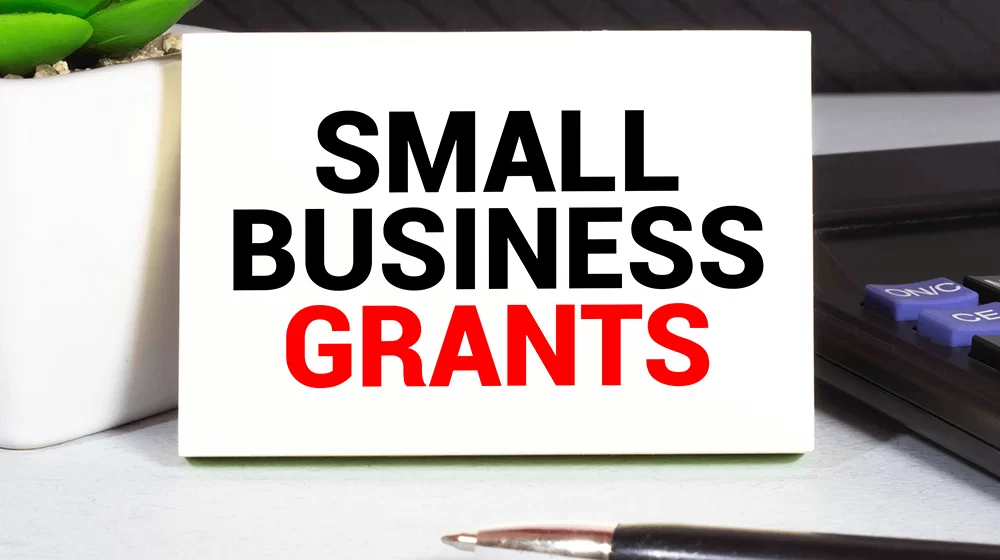
Small business grants are funds given to a business by an organization for a specific purpose. Grants are available to small business owners during their startup phase, company expansion, and research and development.
Unlike small business loans or credit cards, grants don’t need to be repaid; they won’t hurt your business credit score, and you won’t have to worry about lender fees to get your money.
However, grants do come with restrictions—the money has to be spent in a particular way outlined by the grant provider. And if you don’t play by the rules, there could be penalties.
The different types of small business grants
There are two main types of grants: government and private.
You can browse government databases based on your location and industry to find federal and state grants. But these are often paid services that need to be better organized and updated.
Corporations provide small business grant programs as well. These private grants usually have less rigorous application requirements but more funding competition.
You can also apply for a foundation grant. This is another kind of private grant, but you’ll receive grant money from a charitable foundation instead of a corporation.
Unfortunately, the internet hasn’t invented a one-stop database where you can search for every kind of grant. So, we’ve compiled a list of the top government and private grant databases, complete with quick navigation links.
How to apply for (and win) a small business grant
If getting free money was easy, everybody would be doing it. The lengthy application process deters many business owners from applying for funding—but even if the pool of applicants is small, the competition is high. If you find a grant that seems the right fit for your business, it’s important to stand out.
·Pay close attention to each grant application’s stringent requirements before starting the process. Are you a minority-owned business? Check. Are you focused on a positive environmental impact? Check. In operation for over three years? Hmm. If you’ve only been in business for two, you’ll have to wait until next year. Don’t try to fudge the truth—you’ll waste valuable time and effort.
·Read over the grant application and provide complete and accurate information. An incomplete application may not make it through the screening process. Follow the instructions to the letter—if a section asks for a maximum of one page, don’t write one and a quarter.
·Reach out to the grant officer and get a sense of what they’re looking for. What are their needs? Timing? Constraints? The more you know, the better.
·Contact past grantees to see what worked for their application. They can provide valuable insight into how they approached the application so you can replicate it for your business.
·A well-crafted business plan will be required. Make sure your business plan describes why your company will be successful, how the funding will strengthen your business, and how you’ll fulfill the specific goals of the grant. (Check out our complete guide to writing a business plan for more information)
·Follow up with the grant officer after you’ve submitted your application—it’s okay to keep in touch in a non-intrusive way. Ask if they have any questions or concerns that you can address.
Specific Requirements
Grants come with specific use requirements, meaning grantors will request to see your business’s financial reporting. With Bench, you get access to every transaction your business records in a single space and a personal bookkeeping team to help keep things organized. Beyond that, we provide valuable insights into your operations, chat about your finances, and even file taxes.
Federal small business grants
Federal agencies distribute several grants to small businesses in specific industries like scientific research, technology, and conservation. They also help fund nonprofit organizations, educational institutions, and local governments. Federal grants don’t cover starting up a business or operational expenses. Instead, they focus on research and development.
Shuttered Venue Operators Grant (SVOG)
The SVOG is a grant program administered by the Small Business Administration (SBA) that provides emergency financial assistance to eligible shuttered venues affected by the coronavirus pandemic. Venues eligible for this small business relief program include live venue operators or promoters, live performing arts organization operators, theatrical producers, relevant museum operators, zoos and aquariums who meet specific criteria, motion picture theater operators, and talent representatives.
Applicants needing COVID-19 relief may be eligible for grant amounts equal to 45% of their gross earned revenue, up to a maximum of $10 million. Eligible businesses must deduct any PPP loans (Paycheck Protection Program) received on or after December 27, 2020, from their maximum grant amount. For example, if you’re eligible for an SVOG of $100,000 and received a PPP loan in January 2021 for $25,000, your maximum SVOG amount is reduced to $75,000.
Applications were paused on August 20, 2023. However, there were plans to reopen for unallocated funds. If it reopens, you can apply through the SBA’s SVOG portal.
Review the SVOG eligibility requirements and FAQ on SBA.gov before applying.



